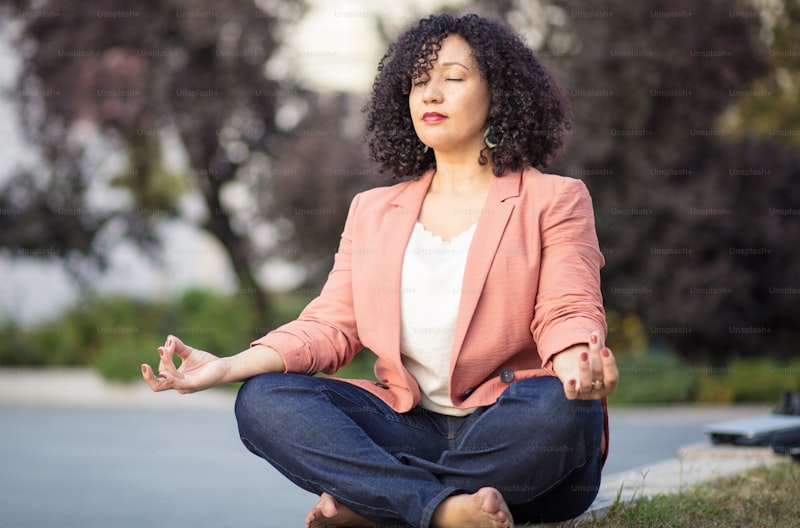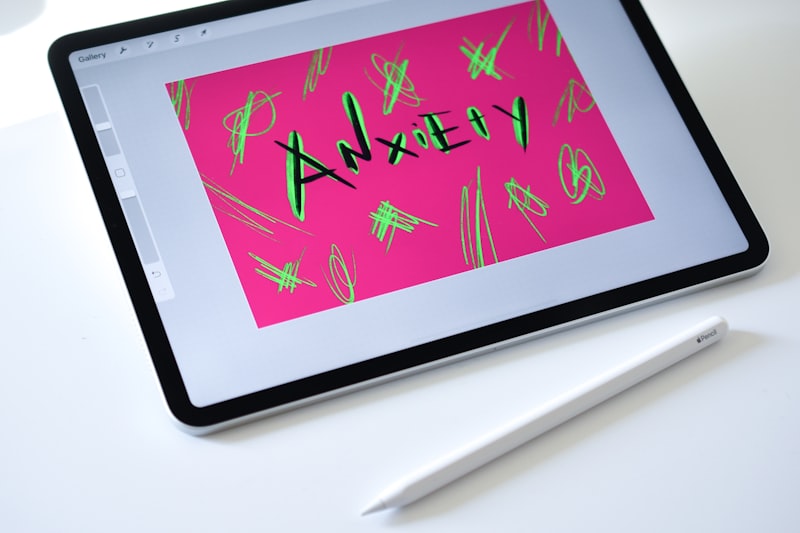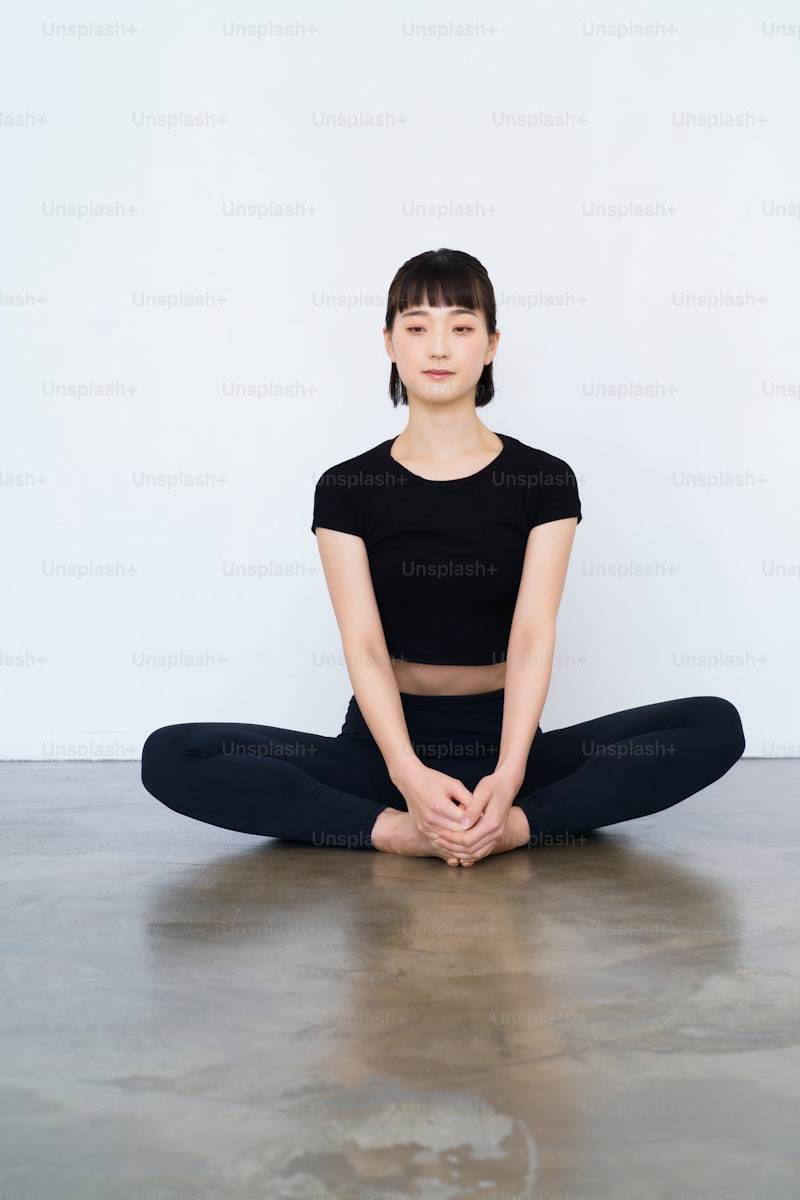In today’s fast-paced world, stress seems like an unwelcome companion we can’t shake off. It sneaks into our lives through work pressures, deadlines, personal challenges, and even the constant buzz of notifications on our phones. But what if there was a way to hit the pause button, even for a few minutes each day?
That’s where meditation comes into play. It’s not just about sitting cross-legged and chanting “Om” (though you can if you like!). It’s about finding a quiet moment to reconnect with yourself, to breathe deeply, and to let go of the tensions that grip your mind.

When you meditate, you’re not trying to escape reality. Instead, you’re training your mind to observe reality without judgment. You become more aware of your thoughts and feelings, but you don’t let them overpower you. It’s like standing in the middle of a storm without being swept away by the wind and rain.
Research has shown that meditation can have profound effects on stress levels. It activates the relaxation response, which helps to lower cortisol levels (the stress hormone) and reduces the activity of the sympathetic nervous system. In simpler terms, it flips the switch from “fight or flight” to “rest and digest.”
But perhaps the real magic of meditation lies in its accessibility. You don’t need special equipment or a serene mountaintop. All you need is a quiet corner, a few minutes of your day, and a willingness to let go. Whether you choose guided meditation, mindfulness meditation, or simply focus on your breath, the benefits can be transformative.
Zen Your Way to Calm: Effective Stress Management Techniques
One powerful technique to achieve this inner peace is mindfulness meditation. By focusing your attention on the present moment without judgment, you can cultivate a deep sense of relaxation and mental clarity. Picture your mind as a still pond, where even the smallest ripples of stress dissolve into calmness.
Another effective method is deep breathing exercises. Just like a gentle breeze can clear the air after a storm, intentional deep breathing can alleviate tension and promote relaxation. By taking slow, deep breaths, you signal to your body that it’s okay to relax, allowing stress to melt away like snow under the warm sun.
Physical activity also plays a crucial role in stress management. Whether it’s yoga, jogging, or simply taking a brisk walk in nature, exercise releases endorphins that uplift your mood and reduce stress hormones. Picture yourself stretching out the tension from your muscles, much like a cat luxuriating in a sunny spot.
Additionally, adopting a healthy lifestyle can support your stress management efforts. Eating nutritious foods, getting enough sleep, and maintaining a regular routine provide a stable foundation for emotional resilience. Imagine your body as a finely tuned instrument, able to handle life’s melodies with grace and ease.
Lastly, finding time for hobbies and activities you enjoy is essential. Engaging in creative pursuits, spending time with loved ones, or even indulging in a good book can recharge your spirit and offer a welcome escape from daily stressors. Think of these moments as small islands of serenity in the vast sea of life.
By integrating these techniques into your daily routine, you can Zen your way to calm and effectively manage stress. Embrace these practices as tools in your personal arsenal against stress, and watch as your ability to navigate life’s challenges with resilience and calmness grows stronger every day.
Unlocking Inner Peace: How Meditation Can Transform Your Stress Levels
Picture this: You’re juggling deadlines at work, managing household chores, and trying to maintain a social life—all while dealing with the pressures of daily life. Stress creeps in, affecting your mood, sleep, and overall well-being. Enter meditation, a practice that goes beyond just relaxation—it’s a mental workout that rewires your brain for resilience.
Meditation isn’t about sitting cross-legged for hours chanting “om”. It’s a versatile practice that can be tailored to fit into your daily routine. Whether you have five minutes or an hour to spare, meditation can be done anywhere, from your living room to your office desk. It’s about creating a space for yourself amidst the chaos, where you can pause, breathe, and let go.
But how does meditation work its magic on stress? Imagine your mind as a turbulent ocean during a storm. Meditation acts like an anchor, grounding you amidst the waves. Through focused breathing and mindfulness techniques, it calms the stormy thoughts swirling in your mind, bringing clarity and a sense of peace.

Scientifically, meditation has been shown to lower cortisol levels—the hormone responsible for stress—while boosting serotonin and endorphins, the feel-good chemicals in your brain. It’s like a natural mood enhancer, promoting a sense of well-being from within.
Think of meditation as a workout for your mind. Just like regular exercise strengthens your body, meditation strengthens your mind’s ability to handle stress. Over time, you’ll notice yourself reacting differently to stressful situations—more calmly and with greater clarity.
Incorporating meditation into your daily routine doesn’t require special equipment or a guru. All you need is yourself and a commitment to carving out a few moments each day to nurture your mental health. Whether you choose guided meditation, mindfulness exercises, or simply focusing on your breath, the key lies in consistency and intention.
Mindfulness Magic: Harnessing Meditation for Stress Relief
In today’s fast-paced world, stress seems to be an inevitable part of daily life. Amidst deadlines, responsibilities, and the constant buzz of notifications, finding moments of calm can feel like a distant dream. This is where mindfulness meditation steps in as a powerful tool for stress relief.
Mindfulness meditation isn’t just about sitting cross-legged and chanting “om”. It’s a practice rooted in bringing awareness to the present moment without judgment. Imagine it as a mental workout that strengthens your ability to stay focused and calm amidst life’s storms.
One of the magical aspects of mindfulness meditation is its versatility. You don’t need fancy equipment or a specific setting to practice. Whether you’re at home, work, or even commuting, you can carve out a few minutes to tune into your breath and observe your thoughts as they come and go.
Research has shown that regular mindfulness practice can have profound effects on reducing stress levels. By cultivating mindfulness, individuals develop resilience against stressors, allowing them to respond rather than react impulsively. It’s like building a mental shield that deflects negativity and fosters a sense of inner peace.
Moreover, mindfulness isn’t just about stress relief; it enhances overall well-being. People who practice mindfulness often report improved focus, better sleep quality, and heightened emotional intelligence. It’s a holistic approach to mental health that anyone can integrate into their daily routine.

So, the next time you feel overwhelmed by the demands of life, consider incorporating mindfulness meditation into your toolkit. Embrace the magic of slowing down, breathing deeply, and reconnecting with the present moment. Your mind—and body—will thank you for it.
This article focuses on the benefits and practice of mindfulness meditation, aiming to engage readers with its conversational tone, practical advice, and insights into stress relief techniques.
From Chaos to Calm: Mastering Stress with Daily Meditation Practices
Imagine stress as a turbulent river, pulling us in all directions. Each day, demands pile up—work deadlines, family obligations, and unexpected curveballs. It’s easy to feel overwhelmed, like we’re drowning in a sea of tasks. This is where meditation acts as a life raft, guiding us back to serenity.
Through simple yet profound practices, meditation encourages us to pause amidst the storm. It’s not about escaping reality but rather embracing a moment of stillness amid chaos. Picture it as finding a quiet corner in a bustling city, where the noise fades, and clarity emerges.
One of the beauties of meditation lies in its accessibility. You don’t need a serene mountaintop or hours of spare time. A few minutes each day can work wonders. Close your eyes, focus on your breath—a gentle ebb and flow—and let thoughts come and go like passing clouds. This practice trains the mind to stay anchored, regardless of the storms outside.
Scientifically, meditation’s benefits are impressive. It lowers cortisol levels—the stress hormone—while boosting serotonin, enhancing mood and resilience. Imagine building a mental shield that deflects stressors, leaving you calmer and more collected in the face of challenges.
The Science of Serenity: How Meditation Rewires Your Stress Response
Ever wondered how some people stay calm amidst chaos while others seem to crumble under pressure? The secret lies in the transformative power of meditation. This ancient practice isn’t just about sitting cross-legged and chanting “om” – it’s a profound mental workout that rewires your brain’s response to stress.
Imagine your brain is a tangled ball of yarn. Stress pulls at it, tightening the knots until you feel overwhelmed. Meditation acts like a skilled weaver, patiently unraveling those knots. It doesn’t eliminate stressors, but rather changes how you react to them.

At its core, meditation fine-tunes your stress response by altering the brain’s neural pathways. Studies have shown that regular meditation reduces the production of cortisol, the infamous stress hormone. Instead of triggering the fight-or-flight response at the slightest inconvenience, meditators exhibit a calmer demeanor, even in high-pressure situations.

But how exactly does meditation achieve this remarkable feat? Think of it as a mental gym session. Each time you meditate, you’re strengthening the prefrontal cortex – the area responsible for rational thinking and decision-making. This part of the brain becomes thicker and more active, acting as a buffer against stress triggers.
Moreover, meditation enhances your emotional resilience, akin to installing an antivirus program on your mind. It improves self-awareness and empathy, allowing you to navigate challenging emotions with grace. Like a seasoned surfer riding the waves, you learn to flow with life’s ups and downs rather than being swept away.
Interestingly, the benefits of meditation extend beyond mental agility. It boosts physical health by lowering blood pressure, improving sleep quality, and even enhancing immune function. Picture it as a holistic spa day for your body and mind.
In essence, meditation is not a quick fix but a lifelong journey toward inner peace. By rewiring your stress response, it empowers you to face life’s uncertainties with serenity and resilience. So, why not start your meditation practice today and unlock the science of serenity within you?
Frequently Asked Questions
How often should I meditate to effectively reduce stress?
Discover the optimal frequency for meditation to effectively reduce stress and enhance well-being.
What are the different types of meditation techniques for stress management?
Discover effective meditation techniques to manage stress with various methods like mindfulness, guided imagery, and progressive relaxation. Each technique offers unique benefits to calm the mind and reduce stress levels effectively.
What are the benefits of meditation for stress relief?
Discover how meditation can effectively relieve stress with its calming techniques and mindfulness practices. Learn about its proven benefits in promoting relaxation, reducing anxiety levels, and enhancing overall mental well-being.
Can meditation help with anxiety and stress-related disorders?
Discover how meditation can effectively alleviate symptoms of anxiety and stress-related disorders. Learn about its proven benefits and techniques to start integrating meditation into your daily routine.
How do I start a meditation practice to reduce stress?
Learn how to start a meditation practice effectively to reduce stress with these clear steps and tips. Begin by finding a quiet space, sitting comfortably, and focusing on your breath. Gradually increase your sessions and explore different techniques to discover what works best for you. Consistency is key; start with short sessions and gradually extend them as you build your practice.


